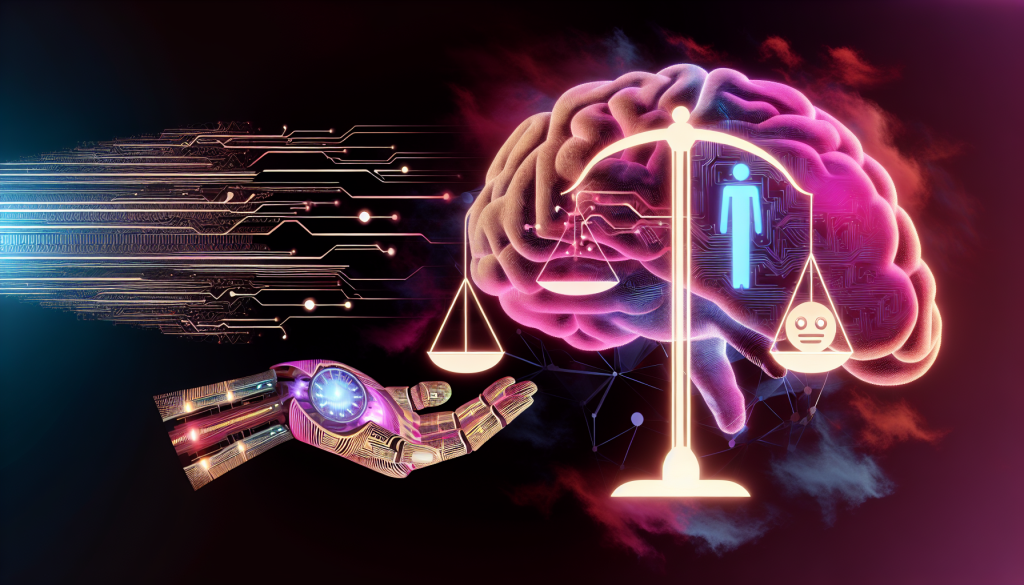
The Human Side of AI: 5 Ethical Challenges Reshaping Your Career in 2025
In a world where AI is becoming as common as electricity, understanding its ethical implications isn't just for tech experts anymore. A striking statistic sets the stage: over 60 countries are now implementing AI regulations, making ethical AI practices a must-know for every professional. Whether you're in marketing, finance, or customer service, these changes will impact your career trajectory. Let's break down what this means for you and how to stay ahead of the curve.
Why This Matters Right Now
Think of ethical AI like a building's foundation – invisible but crucial. Just as you wouldn't want to live in a structurally unsound building, you wouldn't want your career to rely on AI systems that could crumble under ethical scrutiny. With AI increasingly making decisions that affect hiring, promotions, and customer interactions, understanding these ethical considerations is no longer optional – it's essential for career survival.
The 5 Critical Ethical Challenges Reshaping Workplaces
1. Bias and Fairness: The Hidden Career Impact
What's Happening: AI systems are showing concerning biases in hiring and performance evaluations. Facial recognition systems have demonstrated higher error rates for certain ethnicities, while hiring algorithms have shown gender-based discrimination.
What This Means For You:
- If you're job hunting: Learn to ask about AI fairness in hiring processes
- If you're a manager: Understand how to audit AI tools for bias
- If you're in HR: Develop skills in fair AI implementation
Pro Tip: Keep documentation of AI-driven decisions affecting your work. This transparency record could become valuable as regulations evolve.
2. Transparency and Explainability: Your New Professional Skill
What's Happening: Companies are now required to explain how their AI systems make decisions, especially in high-stakes situations.
Getting Started Guide:
- Learn basic AI terminology (2-3 hours of online learning)
- Practice explaining AI decisions to non-technical colleagues
- Document AI processes in your workflow
3. Privacy and Data Security: Your Personal Protection Plan
What's Happening: AI systems process vast amounts of personal data, raising privacy concerns and security risks.
Action Items:
- Review your digital footprint at work
- Understand your data rights
- Learn basic data protection practices
Case Study: A marketing professional recently secured a promotion by developing a privacy-first AI campaign strategy, demonstrating how ethical awareness creates career opportunities.
4. Human-AI Collaboration: Your Competitive Advantage
What's Happening: Companies are implementing "human-in-the-loop" systems, creating new roles for professionals who can oversee AI decisions.
Skill Development Framework:
- Technical literacy (Basic AI concepts)
- Ethical decision-making
- AI oversight capabilities
5. Regulatory Compliance: Your Career Insurance
What's Happening: With new AI regulations emerging globally, understanding compliance is becoming a valuable career skill.
Quick-Start Guide:
- Follow AI policy news (15 minutes daily)
- Join professional groups discussing AI ethics
- Take free online courses in AI ethics
Making This Work For You: Practical Steps
Immediate Actions (Next 30 Days):
- Subscribe to one AI ethics newsletter
- Complete one free online course in AI basics
- Document AI tools used in your current role
Medium-Term Goals (3-6 Months):
- Develop an AI ethics portfolio
- Join AI ethics discussions in your industry
- Create an AI skills development plan
Long-Term Investment (6-12 Months):
- Pursue relevant certifications
- Build a network in AI ethics
- Position yourself as an AI ethics advocate
Cost and Resource Guide
Free Resources:
- Google's AI Ethics Training
- UNESCO's AI Ethics Framework
- Industry webinars and podcasts
Paid Options:
- Professional certifications ($500-2000)
- Industry conferences ($200-1000)
- Advanced training programs ($1000+)
The Bottom Line
Ethical AI isn't just a technical issue – it's a career differentiator. By understanding and advocating for ethical AI practices, you're not just protecting yourself; you're positioning yourself for future opportunities. The professionals who bridge the gap between AI capabilities and ethical considerations will be increasingly valuable.
Remember: You don't need to become an AI expert overnight. Start small, focus on understanding the basics, and gradually build your expertise. The goal is to be informed enough to make ethical decisions and advocate for responsible AI use in your workplace.
Final Pro Tip: Create a personal "AI Ethics Checklist" for your role. Use it to evaluate new AI tools and processes you encounter. This simple practice can help you stand out as a thoughtful, forward-thinking professional.
Want to stay updated on AI ethics and career opportunities? Follow PeeperFrog.com for weekly insights and practical guidance.


